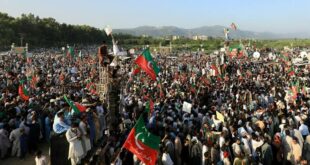In world politics, the ‘international’ realm has managed to popularise itself as a rational, strategic, and calculated space devoid of all history and sentiment. Men and women of the state don’t leave their politics and emotional affiliations at home to interact in neutral limbos of diplomacy, though it may appear so. The mainstream inquiry in most intellectual and policy circles of how nations behave with each other has been detached from the humanitarian, and ‘friendly’ developmentalist approaches often embedded in more ‘sociological’ perspectives taught and propagated in university departments and think tanks. If one is curious of such ‘soft’, ‘human-centric’ and ‘emotional’ concepts, then one is often directed to explore programmes involving anthropology, development, and the humanities—as if humanity is only reserved for culture, the arts and advancing societies, and secondary when dealing in warfare, security, boundaries, and loans and trade agreements.
To exclude such emotionality out of any inquiry is an unhelpful practice. To leave race as both a concept and an action from the study of global affairs is an unhelpful and precarious convenience. The ease with which we know what we mean by ‘race’ when we hear, read, or say the term is not by natural consequence. Race is a doctrinal outcome of social relationships, and historical processes of hierarchical constructions. Dominantly, to acknowledge a group of people by their race entails categorising them based on characteristics like complexion, facial features, ethnicity, and place of birth or ancestral belonging. First and foremost, it is to assume that people are in fact divided into races. The common usage of the term ‘racism’ often takes for granted this construction of identification altogether, assuming the existence of ‘race’ as something apolitical. The common usage of the term racism is embedded in the belief that races will come into conflict when confronted with each other—essentially, putting race into action.
International relations, or affairs, or politics—is an arena that puts race into action frequently yet constantly attempts to rid itself of having the personality capable of doing so. The reason lies with two major strands of thought and practice. One, bulk of the knowledge in international relations—which helps formulate decisions and policy—is generated in Western academia which is dominated by Western-centric discourse, that comfortably rests on an amnesia of Europe’s confrontation with and colonization of much of the world, and the belief that racism has been resolved as of the late 20th century. Such a discourse leaves out many areas from inquiry altogether and is palatable to most state officials and policymakers whose interests lie in upholding the status quo. Whatever is not palatable is deemed best for intellectual consumption, creative yet impractical, and unfit for policy formulation. Second, the practice of interacting with other states is either informed by war or diplomacy. The ones whose wars gain most attention and are deemed wars instead of episodes of ‘unrest’, ‘barbarism’, ‘terrorism’, ‘humanitarian violence’ and ‘political turmoil’, are those countries most in power as well as equipped with the stealth and continuous military machinery to fight and endure or get away with causing damage. Meanwhile, diplomacy seems to have become synonymous with European cross-cultural etiquette. So much so that foreign offices, leading diplomats, and prime ministers of developing countries are seldom deemed unsuited and too cultural or traditional to speak and negotiate their terms in front of the world. This way, countries in the periphery are racialised into not knowing how to strategize nor do diplomacy right.
Those that take to powerful positions in the world are also not immune to this and many other forms of racialisation. Pakistani, Indian and Bangladeshi members of parliament in the United Kingdom are examples of racial representation, as often made a point by their fellow MPs as well as South Asian communities in the UK and at home. Yet even here, race is conveniently distanced from politics when people are reminded that such leaders still service the British state and a distant political party. On more extreme ends, states also exclude questions of race, violence, and genocide in addressing issues like terrorism and national security. With rising violence in and around Pakistan, especially with the escalated activities of the Tehreek-i-Taliban, and its factions and affiliates, Washington has started to take a keener interest in influencing Pakistan’s current security approach than it has since its exit from Afghanistan in 2021. Any such policy influence runs the risk of foregoing the effective management of Pakistan’s internal racial dynamics, especially in the Newly Merged Districts (former-FATA), whose people and systems have been racialised as ‘too tribal’ to integrate. This in itself is an outcome of British colonial forces’ identification and stereotyping of FATA’s people, owing to the place that race has in the global sphere.
A manifestation of such racial legacies is in the recent statement by Munir Akram, Pakistan’s envoy to the United Nations, who blamed Pashtun culture as the basis for the Afghan Taliban’s decisions to restrict Afghan women’s mobility, and access to education and work. The statement received intense backlash, after which the Ambassador apologised and clarified his remarks that were made earlier at the briefing on Afghanistan at the UN Headquarters. The assumptions behind his initial comments, the intensity of public reaction, and the subsequent apology are all evidence to how race is put into action in diplomacy. To maintain a smokescreen of neutrality, such instances are accepted as minor failures in speech, or a lapse in rationality, and nothing more. The important role that race has in world politics plays out insidiously, as with generations of emotions, prejudice and affiliations embedded in the practices and thinking of both states and people. To propagate or study the behaviour of nations is incomplete without exploring the ‘softer’ tools of human inquiry that are often side-lined and seldom even feminised—perhaps their use could do better for those who govern and who are made to be governed.
 Pride News Daily NEWS
Pride News Daily NEWS





